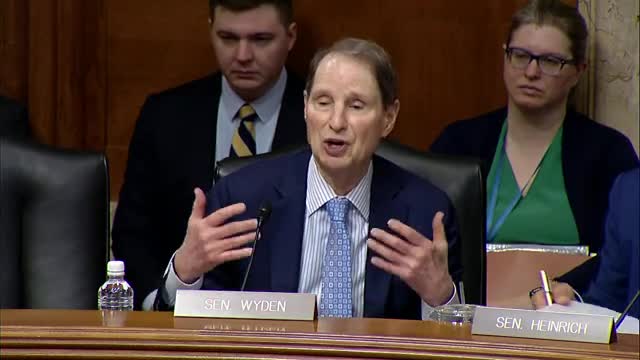Idaho lawmakers rage against controversial wind project
June 13, 2024 | Energy and Natural Resources: Senate Committee, Standing Committees - House & Senate, Congressional Hearings Compilation

This article was created by AI summarizing key points discussed. AI makes mistakes, so for full details and context, please refer to the video of the full meeting. Please report any errors so we can fix them. Report an error »

In a heated government meeting, significant opposition emerged regarding the Lava Ridge wind project in Idaho, which has drawn widespread disapproval from local communities and officials. Senator Risch expressed the frustration of over 1.8 million constituents, including unanimous resolutions from the Idaho legislature and affected counties, all opposing the project. The senator highlighted the anger stemming from the proposed installation of 241 wind turbines across 100,000 acres, emphasizing that the energy generated would primarily benefit California, not Idaho.
The Bureau of Land Management (BLM) official, Miss Dormenning, acknowledged the backlash but defended the project, stating that the proposal had been reduced from an initial 400 turbines to 241, which would still provide energy for up to 500,000 homes. However, Risch countered that the community's overwhelming sentiment was against the project, questioning the lack of local support and accusing the BLM of prioritizing corporate interests over the concerns of Idaho residents.
The discussion also touched on broader implications for land management, with Risch criticizing the BLM's handling of public lands and accusing the administration of neglecting the needs and voices of local communities. The meeting underscored a growing tension between federal energy initiatives and local opposition, raising questions about the future of renewable energy projects in rural areas.
Additionally, concerns were raised about a draft resource management plan for BLM lands in North Dakota, which would restrict new leasing for oil, gas, and coal, potentially disenfranchising private landowners. This highlights ongoing debates over land use and resource management as the government navigates the complexities of energy development and environmental stewardship.
The Bureau of Land Management (BLM) official, Miss Dormenning, acknowledged the backlash but defended the project, stating that the proposal had been reduced from an initial 400 turbines to 241, which would still provide energy for up to 500,000 homes. However, Risch countered that the community's overwhelming sentiment was against the project, questioning the lack of local support and accusing the BLM of prioritizing corporate interests over the concerns of Idaho residents.
The discussion also touched on broader implications for land management, with Risch criticizing the BLM's handling of public lands and accusing the administration of neglecting the needs and voices of local communities. The meeting underscored a growing tension between federal energy initiatives and local opposition, raising questions about the future of renewable energy projects in rural areas.
Additionally, concerns were raised about a draft resource management plan for BLM lands in North Dakota, which would restrict new leasing for oil, gas, and coal, potentially disenfranchising private landowners. This highlights ongoing debates over land use and resource management as the government navigates the complexities of energy development and environmental stewardship.
View full meeting
This article is based on a recent meeting—watch the full video and explore the complete transcript for deeper insights into the discussion.
View full meeting